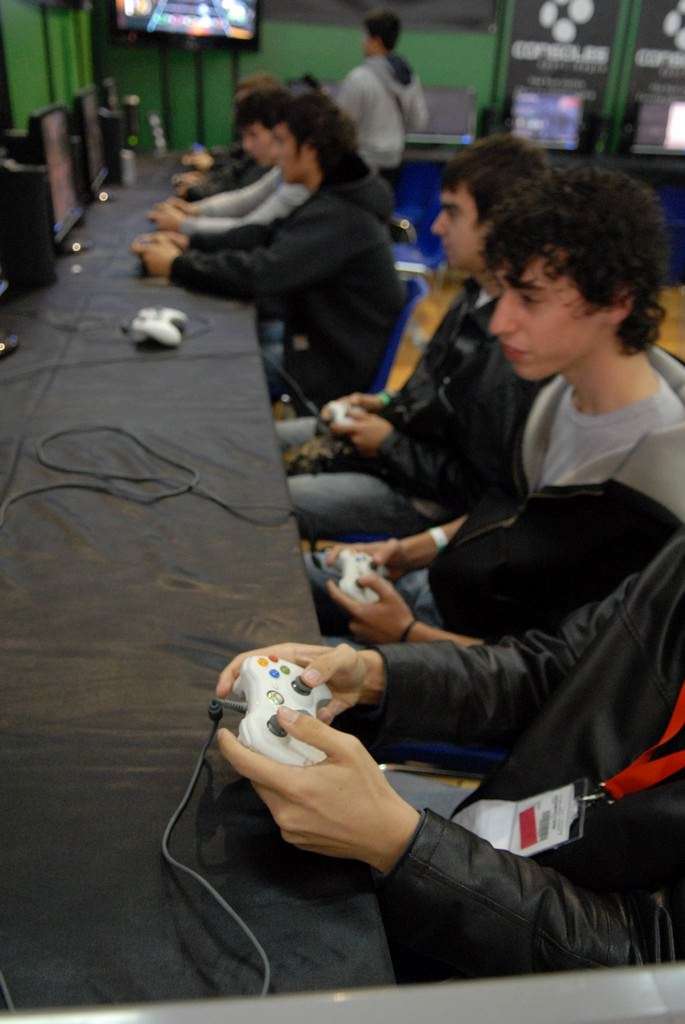Video Games Build Strong Brains
Too often treated as a social vice rather than a supplement to veggies and fresh air, video games may actually be good for you.

The hoary stereotype of avid video gamers as pasty shut-ins missing out on the world is already passé—too many of the people making things happen in today's high-tech world are gamers themselves for that image to survive. But skeptics continue to raise doubts about the wholesomeness and healthiness of video games. They can be addictive, scary articles warn us with…well…compulsive regularity.
They can even make you scary—and violent!
Yeah. Maybe. But they can also be good for your brain, and even fend off senility.
For one thing, playing World of Warcraft can give you a massive, pulsing noggin. Oh, OK, not quite that. But gaming can increase left front cortical thickness in teens. That means more gray matter, to you and me. Specifically, it means more gray matter in areas that help people pay attention and exercise something resembling good judgment.
Researchers studied 152 adolescents who played video games for an average of 12.6 hours per week. They found that gaming correlated with increased thickness in the left dorsolateral prefrontal cortex and the left frontal eye field.

That's important because these areas of the brain are connected with attention, and with executive functions, including working memory, planning, inhibition, and abstract reasoning.
Teens could use a little help in these areas. Actually, so could a lot of us.
Seperately, 72 non-gaming female undergraduate at the University of Texas at Austin, were recruited to discover what video games would do to their brains (you're not the only one visualizing Dr. Egon Spengler here). Actually, the participants were all women because the researchers couldn't find enough men who played fewer than two hours per week to include in the study. The subjects were assigned to play either StarCraft or Sims, to see if different kinds of video games would have different effects.
Fortunately, the results did not involve spontaneous human combustion.

What researchers found is that participants engaged in "real-time strategy" gaming—StarCraft, in this case—improved their cognitive flexibility. That is to say, they got better at switching between thinking about different concepts, and at thinking about multiple concepts simultaneously.
In this crazy, fast-paced world of ours, these are good skills to cultivate.
But if video games improve the gray matter of the young set, it also assists those who have gray hair to match. It can actually help older people outperform their juniors on matters mental.
A study of people aged 60-85 years old published in Nature found that cognitive control is improved by playing a custom-designed, three-dimensional video game. That is, the participants enhanced their ability to multi-task, as well as their working memory and their ability to sustain attention.
The driving game, NeuroRacer, attained "levels beyond those achieved by untrained 20-year-old participants, with gains persisting for 6 months."
So video games don't just build strong brains, they restore them, too.
That's not too bad for a popular pastime that's too often treated more as a social vice rather than a supplement to veggies and fresh air.


Show Comments (29)